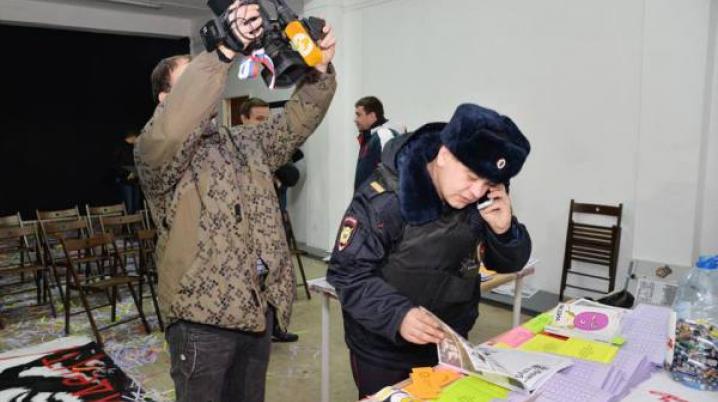
Russia bans George Soros’ Open Society Foundations
The Russian Prosecutor General’s Office decision to list George Soros’ non-governmental organizations as 'undesirable' bans the Open Society Foundation and the Open Society Institute’s Assistance Foundation from disbursing grants in Russia. The ruling affects Russian human rights and civil society organizations. The cultural sector, however, does not remain untouched.
In May 2015, the Russian parliament passed a law on ‘undesirable organizations’, which pose a threat to the foundations of the Russian constitutional system and security of the state. The law is intended to ‘stop foreign governments from interfering in Russia’s internal affairs’ and makes the acceptance of grants from listed foreign organizations illegal for Russian organizations and individuals.
In a press release, the Open Society Foundation expressed its dismay about the decision of the Prosecutor General’s Office. After more than a quarter-century of supporting individuals and civil society organizations, the foundation ‘regrets the changes that have led the government to reject its support to Russian civil society and ignore the aspirations of the Russian people’. The foundation is however determined to continue to support those who seek their assistance in accordance with its mission and within the limits of the Russian law.
Impact on the cultural sector
Since its foundation in 1993, the Open Society Foundations has spent approximately $1.6 billion on democratic development in Eastern Europe and in former Soviet countries. Although the foundation generally supports human rights and civil society organizations, it made a valuable contribution to the development of the Russian cultural sector.
In the early 90's George Soros founded the Soros Centres for Contemporary Art (SCCAs) and Soros funding programmes, which allowed 'unofficial' art to flourish. Soros continued supporting the Russian cultural scene by creating the MediaArtLab in 1997, which aimed to bridge the gap between different cultural fields and evolving information technology. In 2003 Soros’ foundations closed their offices in Russia, but continued to disburse grants to Russian organizations and individuals, including cultural initiatives. The Prosecutor General’s decision prohibits such forms of support for the future.
Tendency
The Prosecutor General’s ruling does not solely affect the interests of civil society, human rights and cultural organizations, but has a more far-reaching effect on Russian society. The ‘foreign agent law’ of 2012 already required NGO’s that receive foreign donations and engage in political activity to register as foreign agents. The new law goes a step further and allows the government to qualify organizations as threat to the security of the state. Organizations are increasingly aware of the risks of receiving foreign grants. This may harm the international cooperation with Russian cultural organizations and artists.


